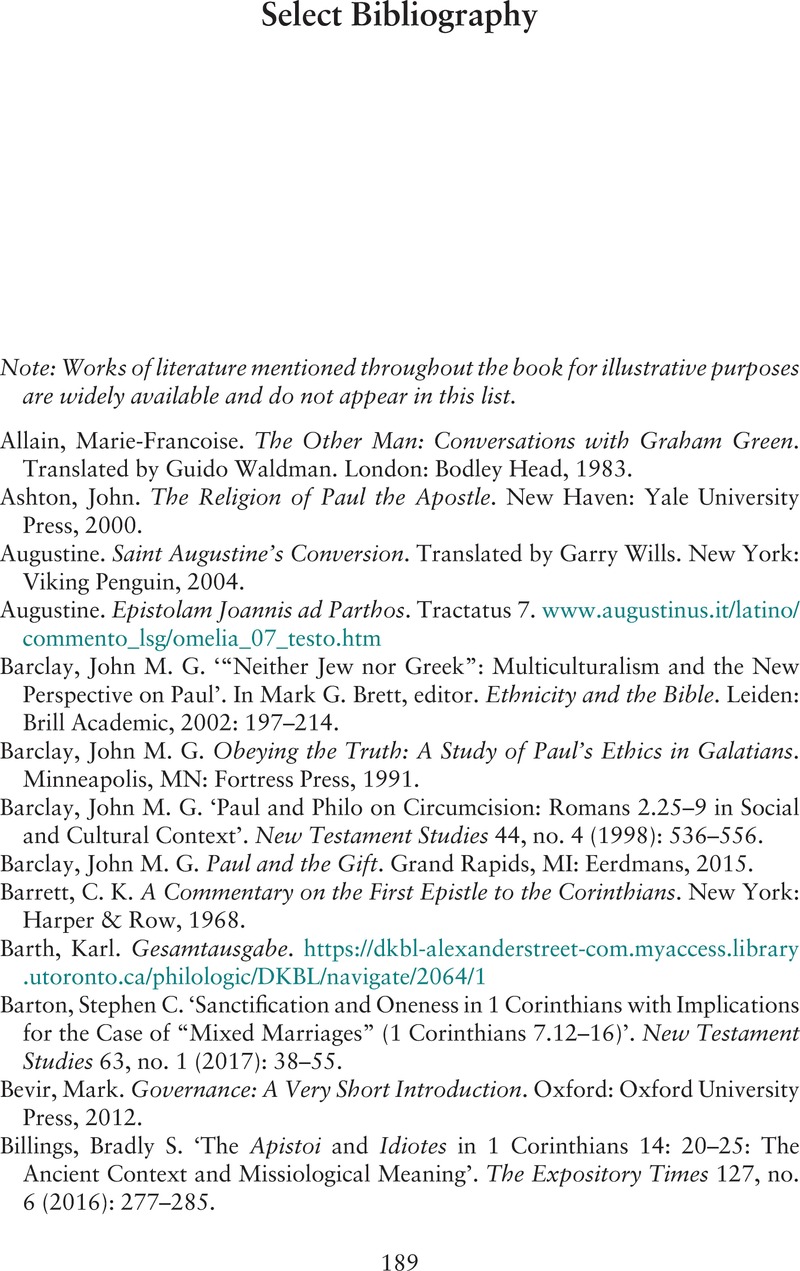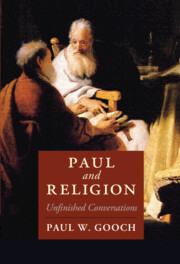Book contents
- Paul and Religion
- Cambridge Studies in Religion, Philosophy, and Society
- Paul and Religion
- Copyright page
- Dedication
- Contents
- Preface
- 1 What Does Paul Have to Do with Religion?
- 2 What Kind of Religious Interlocutor Is Paul?
- 3 What Is the Religious Form of Life for Paul?
- 4 What Does the Pauline Religious Form of Life Have to Do with Death?
- 5 What, for Paul, Is the Nature of the Religious Form of Community?
- 6 How, for Paul, Should Life ‘in Christ’ Be Lived?
- 7 What, for Paul, Are the Marks of Membership?
- 8 How, for Paul, Does a Religious Community Relate to Others?
- 9 Paul and Religion
- Select Bibliography
- Locorum Index
- Subject Index
- References
Select Bibliography
Published online by Cambridge University Press: 31 March 2022
- Paul and Religion
- Cambridge Studies in Religion, Philosophy, and Society
- Paul and Religion
- Copyright page
- Dedication
- Contents
- Preface
- 1 What Does Paul Have to Do with Religion?
- 2 What Kind of Religious Interlocutor Is Paul?
- 3 What Is the Religious Form of Life for Paul?
- 4 What Does the Pauline Religious Form of Life Have to Do with Death?
- 5 What, for Paul, Is the Nature of the Religious Form of Community?
- 6 How, for Paul, Should Life ‘in Christ’ Be Lived?
- 7 What, for Paul, Are the Marks of Membership?
- 8 How, for Paul, Does a Religious Community Relate to Others?
- 9 Paul and Religion
- Select Bibliography
- Locorum Index
- Subject Index
- References
Summary

- Type
- Chapter
- Information
- Paul and ReligionUnfinished Conversations, pp. 189 - 195Publisher: Cambridge University PressPrint publication year: 2022

